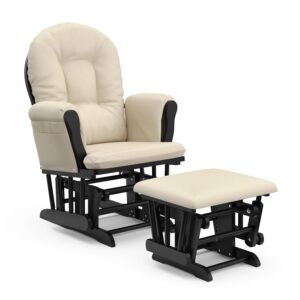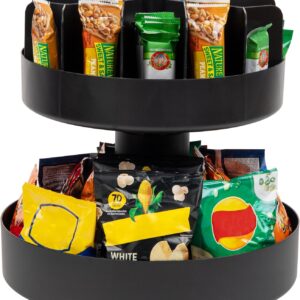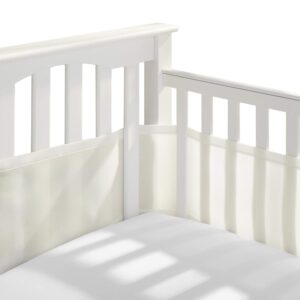Getting a healthy sleep with a newborn may sound simple, but ask any new parent, and they will tell you how they get to sleep with their baby. When you face sleep deprivation with a newborn, you’re not just tired but running on fumes. You continuously try to keep yourself active and alive while forgetting when you last had a peaceful night’s sleep and a proper meal.
So, how do parents survive this period of long nights, messy schedules, and in-between moments where exhaustion turns to frustration? Here is how to manage sleep deprivation while keeping yourself sane and healthy for your baby.
Read about: Why Tummy Time Is So Important – And How to Make It Fun
What No One Tells You About Sleep After Baby:
Honestly, you must prepare yourself for the first few weeks of life with a newborn. You have to feed their tiny tummies every 2-3 hours, and they have not yet figured out the difference between day and night. The start of your new reality includes.
- Sleep schedule is completely chopped off
- You forget the feeling of “deep sleep”.
- You question whether the peak level of exhaustion you reach is normal.
We know this phase is tough and rough, but keep in mind it is temporary. Let’s make it bearable together.
Smart Sleep Hacks That Save Your Sanity:
Getting appropriate sleep doesn’t mean you have to sleep for eight uninterrupted hours. You have to be smart with what you can get. Use some hacks to get more sleep to keep yourself sane. Here is how to make the most of what you have:
- Forget the chores. Priorities sleep over everything. Always!
- Take naps in shifts. Trade an odd three-hour block at night with your partner. One rests while the other handles the baby.
- Prep your nighttime station. Diapers, wipes, snacks, water, charger — all within reach.
- Keep the lights dim. Use a night lamp or light while feeding.
Even these few adjustments can help you to sleep a little more.
Tired and Exhausted? That’s normal:
Sleep deprivation doesn’t just affect your body; it clouds your senses and weighs on your emotions. You might find yourself:
- Crying unexpectedly
- Feeling detached or numb
- Snapping at your partner
These are all common effects of newborn sleep deprivation. But they are also signs to be easy on yourself. Take breaks, talk about your feelings, and if you are struggling beyond the usual tiredness, talk to your doctor. Your mental health is important as it affects the baby too.
What If You’re Solo Parenting?
If you are a single parent, you are a superhero. But heroes need some rest, too. Here is how to get through:
- Say yes to help. Even if it’s a small help, like a friend bringing food or a neighbor holding a baby while you do chores.
- Sleep when the baby sleeps. Even during the day.
- Set alarms if you are afraid of oversleeping while feeding.
You don’t have to be perfect. Just do what you have in your control.
Design a Suitable Sleep Routine:
Forget the aesthetic Pinterest schedules. Life with a baby is unpredictable. But creating a sleep schedule that works for you can give your body a rhythm.
Try these to get a little bit more sleep:
- Take a power nap mid-morning while the baby sleeps.
- Try early evening naps to recharge yourself for night shifts.
- Split the night shift. One partner covers 9 p.m.–2 a.m., the other 2 a.m.–7 a.m.
Try to be flexible. Don’t be rigid. Build a rhythm.
Mini Habits to Recharge Yourself:
You won’t get super-duper energetic with these habits, but you can still feel better and fresher.
- Drink more water to keep yourself hydrated. Hydration helps boost energy levels.
- Get sunlight. Even 10 minutes of fresh air and sunlight refreshes your brain.
- Eat smart snacks. Prioritize protein and fiber over sugar.
- Move your body. A slow stretch or a five-minute walk counts.
Self-care doesn’t have to be luxurious. Doing basic things for your health is essential.
Prioritise Your Own Rest and Recovery with these tools:
- Postpartum care kit with bath soak, balm, etc.
- Supportive nursing pillow for better posture during feeds
- Reclining nursery glider with footrest
- Compact snack station near bed or nursery
- Hydration bottle with time markers
- Back or wrist support brace (common postpartum strain areas)
- Weighted blanket (for deeper, restorative naps)
- Cooling gel pillow (to fall asleep faster post-feed)
- Herbal tea blends for sleep (e.g., chamomile, valerian root)
How Long Does This Sleep Deprivation Last?
Wondering how long it will take to get your deep night’s sleep back? Here is a general idea:
| Baby’s Age | Sleep Pattern |
| 0–6 weeks | Up every 2–3 hours |
| 6–12 weeks | Might sleep 4–5-hour blocks |
| 3–4 months | Starts to recognize nighttime |
| 6+ months | Some sleep through the night |
All babies are different. Some babies start getting sleep for longer intervals early, while others take longer. Either way, you will get back your peaceful night’s sleep.
Create a peaceful sleep space for baby with these products:
- Breathable mesh crib liner (safer alternative to bumpers)
- Organic cotton crib sheets (soft and gentle on baby skin)
- Musical toy with lullabies and heartbeat sounds
- Night light projector or slow color-changing light
- Soft baby brush set (scalp massage can soothe before bed)
- Nighttime diaper cream (to prevent rash during long sleeps)
Holding It Together When You’re Falling Apart:
Sleep deprivation with a newborn brings out a frustrated version of yourself, and that’s okay. Don’t be tough on yourself. The things that can help:
- Let go of the to-do list.
- Cherish the mess with your newborn.
- Focus on bonding moments and let go of perfection.
- Take deep breaths. You are doing better than you think.
Be gentle with yourself. Parenting is an experience full of learning and exploring new things.
Check out: Cloth vs. Disposable Diapers: What Should You Choose?
When It’s Time to Call in Help:
If the exhaustion reaches a peak level. If you’re losing your mind and sanity. And if you are feeling hopeless or unwell, don’t bottle it up and reach out for help to:
- A postpartum therapist.
- Your pediatrician or OB
- A lactation consultant or night doula
You deserve sleep and support. Don’t wait to ask.
Frequently Asked Questions:
1: Can sleep deprivation with a newborn affect my relationship?
Yes. Frustration because of sleep deprivation can lead to a short temper and detachment. Talking with your partner, being honest, and comforting each other help reduce tension and stress.
2: Are there any baby products that help parents sleep better?
White noise machines, swaddles, bassinets with motion, or nightlights can create a more restful environment for the baby and you.
3: What is the difference between normal and postpartum depression?
Normal tiredness and depression improve with rest and medication. If you feel persistently detached, hopeless, or struggle to bond, it may be worse than sleep deprivation. Consult your doctor.
4: How can dads better sleep after the baby arrives?
By managing household chores, preparing bottles, taking night shifts, and most importantly, being emotionally available. Active support helps reduce the burden and sleep deprivation in moms.
5: Should I wake my baby to feed at night?
Yes, if recommended by your pediatrician, especially for the first few weeks. Once your baby starts getting healthy, you might not need to wake your infant every time.
Right now, you might feel you will never get continuous night sleep. But it’s a temporary period. Soon you will wake up at night, confused about how your baby is sleeping so soundly without waking up. For now, bear with this up-and-down routine. Show yourself compassion. Rest when the baby rests. Ask for assistance. You are doing great, so be gentle with yourself.

















Add Comment